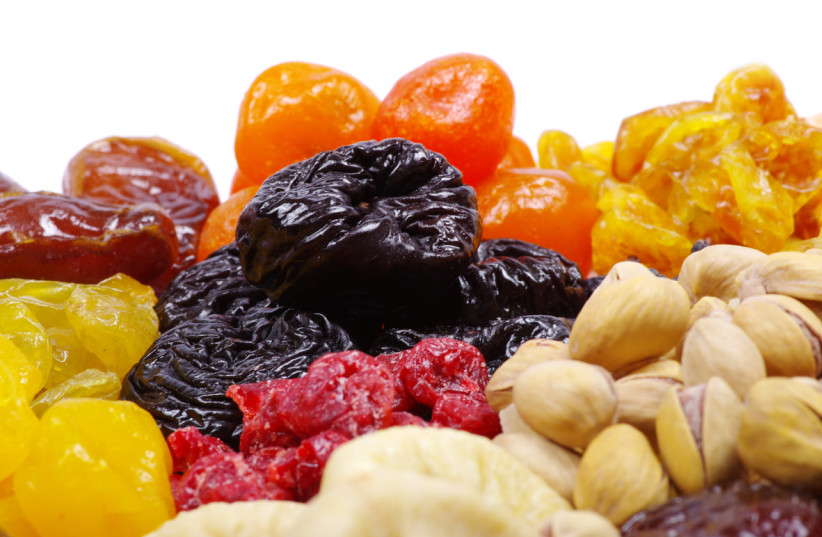Instead of buying sugared and dried fruit from Turkey and other countries hostile to Israel, the Israel Plants Production and Marketing Board recommends serving fresh fruits and nuts on Tu Bishvat – the New Year of Trees – that is being marked on Thursday.
The custom of buying dried fruits originated with Jews who lived in the diaspora and suffered from a lack of fresh fruit in the winter season, so they consumed dried fruit brought from Israel instead.
No need to purchase dried fruit for this year's holiday
But today, when one can find on supermarket and grocery store shelves dozens of types of fresh fruit produced in the country. “There is no reason to continue consuming imported and processed dried fruit, some of which are high in added sugar, preservatives, and food coloring, while the fresh fruit is completely natural and rich in vitamins and many nutritional values, without any food coloring or industrial processing.
The council emphasizes that there are currently many fresh Israeli fruits on the shelves, including bananas, apples, oranges, strawberries, pears, kiwi, clementine, melon, persimmon, grapefruit, pomegranate, pomelo, red grapefruit, and more.
The Israeli-grown date dries on the tree naturally without the need for added sugar or preservatives.
Further benefits of purchasing fresh fruit in Israel
According to Rani Bar-Nes, the head of the fruits division of the Israel Plants Production and Marketing Board and a farmer who grows fruit (peaches, nectarines, pomegranates, plums, persimmons and more), “most of the agricultural work is done within the borders of the country, and since the outbreak of the war, many farmers both from the south of the country and from the north, have been affected by the current attacks over the borders."

"Many growers are being recruited into the reserves, there are many growing areas that have been damaged and some that cannot be reached at all, and there is also a great shortage of workers who can carry out the agricultural work. But despite all these, there is an abundance of Israeli fruits on the shelves. Recently, the law to mark the country of origin for agricultural produce also came into effect, so it is easier than ever to identify Israeli produce on the shelves. Therefore, in preparation for Tu Bishvat, we call on the Israeli public to prefer fresh fruits produced in the country with high health and nutritional values over the imported dried fruits. In this way, they will both maintain their health and support the local economy and Israeli growers,” Bar-Nes urged.
Dr. Maya Roseman, clinical nutritionist and scientific advisor to the council, added that “compared to dried fruits, the nutritional value of the fresh fruits is much higher. The amount of vitamins in the fresh fruits is immeasurably high, especially when it comes to vitamin C, which is especially important for preventing diseases during the winter and transition seasons and is found only in fresh fruits and not in dried fruits at all and is not found in dried fruits at all. Beyond that, most dried fruits (except organic ones) contain chemicals such as iron sulfate that are preservatives or color enhancers. These harm our health and are completely unnecessary. The conclusion - it is most healthful and tastiest to eat fresh fruit, even when the dried fruit is offered to us in tempting and colorful abundance.”
